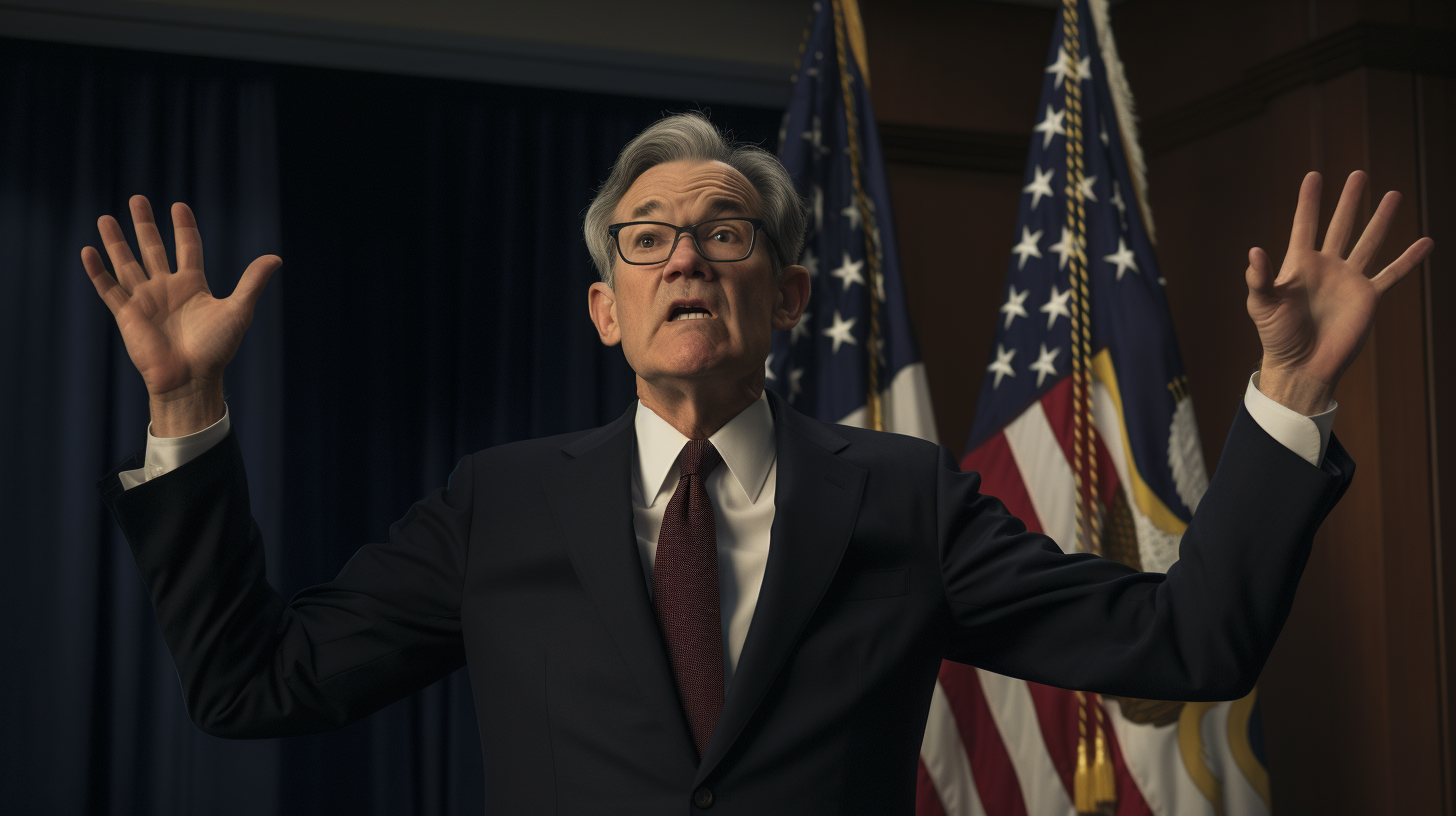Federal Reserve Chair Jerome Powell reiterated the central bank’s determination to bring down inflation in a speech today, even as he acknowledged potential economic risks from sustained high interest rates. His remarks underline the Fed’s unwavering focus on price stability despite emerging signs of an economic slowdown.
While noting welcome data showing inflation may be starting to cool, Powell stressed it was too early to determine a downward trend. He stated forcefully that inflation remains “too high”, requiring ongoing policy resolve from the Fed to return it to the 2% target.
Powell hinted the path to lower inflation likely entails a period of below-trend economic growth and softening labor market conditions. With jobless claims recently hitting a three-month low, the robust job market could exert persistent upward pressure on prices. Powell indicated weaker growth may be necessary to rebalance supply and demand and quell wage-driven inflation.
His remarks mirror other Fed officials who have suggested a growth sacrifice may be required to decisively curb inflation. The comments reflect Powell’s primary focus on price stability amid the worst outbreak of inflation in over 40 years. He admitted the path to lower inflation will likely prove bumpy and take time.
Powell stated the Fed will base policy moves on incoming data, risks, and the evolving outlook. But he stressed officials are united in their commitment to the inflation mandate. Additional evidence of strong economic growth or persistent labor market tightness could necessitate further rate hikes.
Markets widely expect the Fed to pause rate increases for now, after aggressively raising the federal funds rate this year from near zero to a current target range of 3.75%-4%. But Powell avoided any definitive signal on the future policy path. His remarks leave the door open to additional tightening if high inflation persists.
The speech underscores the Fed’s data-dependent approach while maintaining flexibility in either direction. Powell emphasized officials will proceed carefully in evaluating when to halt rate hikes and eventually ease monetary policy. The Fed faces heightened risks now of overtightening into a potential recession or undertightening if inflation remains stubbornly high.
After being accused of misreading rapidly rising inflation last year, Powell stressed the importance of policy consistency and avoiding premature pivots. A sustainable return to the 2% goal will require ongoing tight monetary policy for some time, even as economic headwinds strengthen.
Still, Powell acknowledged the uncertainties in the outlook given myriad economic crosscurrents. While rate hikes will continue slowing growth, easing supply chain strains and improving global trade could help counter those drags next year. And robust household savings could cushion consumer spending despite higher rates.
But Powell made clear the Fed will not declare victory prematurely given the persistence of inflation. Officials remain firmly committed to policy firming until convincing evidence demonstrates inflation moving down sustainably toward the target. Only then can the Fed safely conclude its aggressive tightening cycle.
For investors, Powell’s speech signals monetary policy will likely remain restrictive for some time, though the ultimate peak in rates remains uncertain. Markets should prepare for extended volatility as the Fed responds to evolving economic data. With risks tilted toward policy tightness, interest-sensitive assets could face ongoing pressure.
